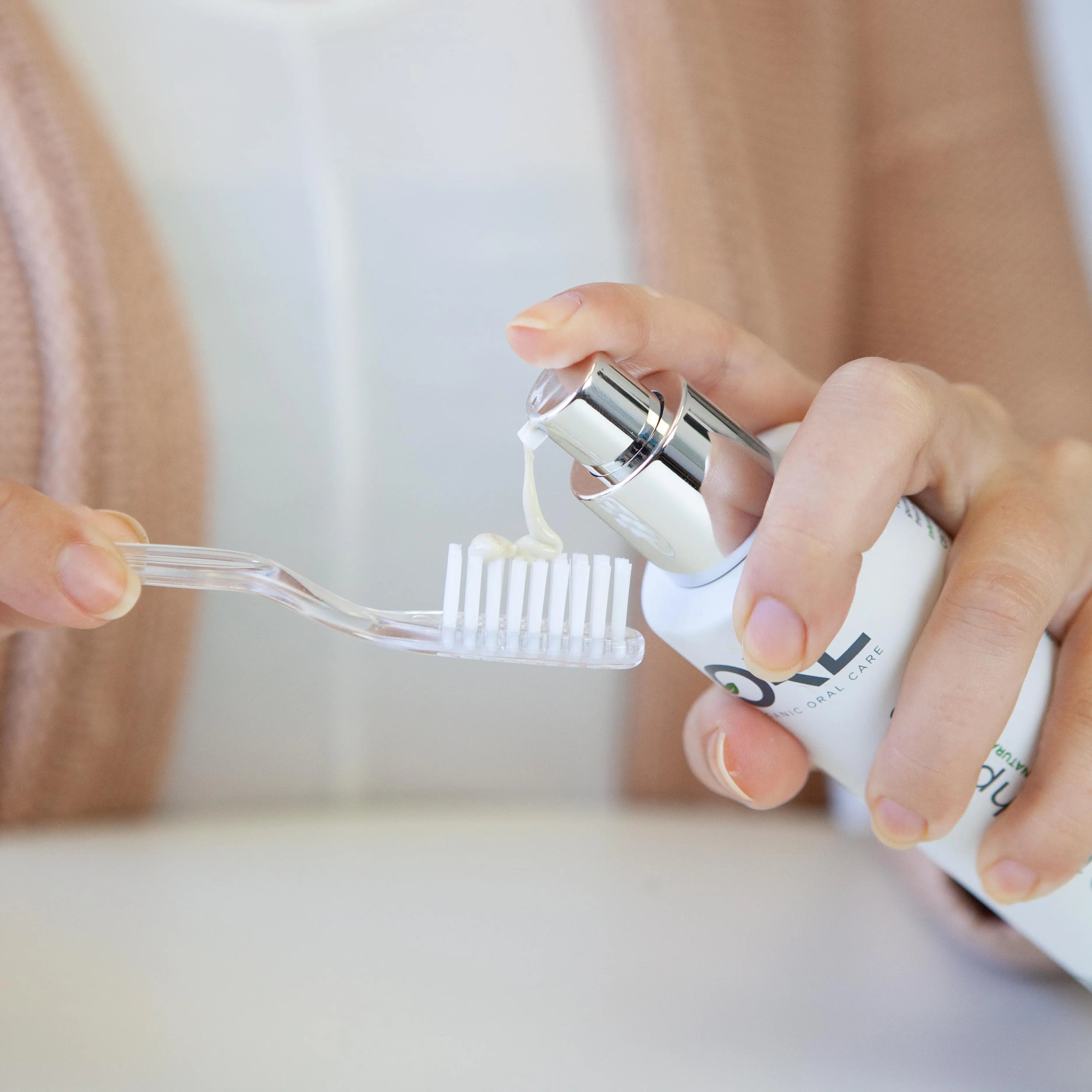Dry mouth, clinically known as xerostomia, doesn’t get a lot of press, but it impacts a huge portion of the population. While many people try to ignore it or assume it’s a natural side-effect of aging, failing to address it can impact daily life and result in dire consequences such as tooth loss.
Why Saliva Matters
Xerostomia isn’t just an annoyance. Saliva is vital in a number of bodily processes and functions. Research from the According to the American Dental Association (ADA) shows it:
- Keeps tissues moist and protects oral mucosa from injury.
- Helps clean the oral cavity.
- Allows you to chew and swallow food.
- Contains enzymes that kickstart the digestive process.
- Can help you maintain a neutral pH, thus preventing tooth demineralization.
- Contains minerals that strengthen teeth so they’re less susceptible to decay.
Causes of Dry Mouth
Xerostomia often emerges as people age, so many people associate it with the aging process. However, prevalence actually rises with age because older populations are more likely to be taking medications that contribute to it. According to the ADA, more than 400 over-the-counter and prescription medications are culprits and those taking multiple medications have increased risk. In addition to medications, cancer treatments, autoimmune diseases, uncontrolled diabetes, hormonal changes, infections, and countless other conditions can contribute to xerostomia too.
Who’s Most At-Risk for Xerostomia
Older people are most at risk, simply because they’re more likely to be on a medication that causes it or have a health condition that contributes to it. It becomes especially worrisome for elderly individuals who rely on the assistance of others because xerostomia often goes unrecognized and untreated. However, anyone of any age can develop xerostomia, and prevalence is slightly greater among women than men.
Consequences of Dry Mouth
Disruptions to Daily Life: Without adequate lubrication, it’s difficult to speak and eat. Many people with xerostomia also have altered taste sensation too.
Emotional Wellbeing: It can be frustrating to have xerostomia and the challenges associated with it may cause embarrassment. Sometimes, it causes people to withdraw socially as well. Combined, these things have a major impact on quality of life and happiness.
General Health: If you can’t eat well or your body cannot break down the food you eat due to dry mouth, malnutrition may set in. This comes with a whole host of consequences of its own. Some of the most vulnerable populations have mobility or balance-related issues too, which means getting up for drinks in the middle of the night presents serious fall risks. Plus, many people turn to sugary drinks and lozenges for comfort, increasing the risk of tooth decay even more.
Oral Health: Without the protection saliva affords, microbial, chemical, and physical injuries are more likely to occur. It’s also virtually impossible for the mouth to maintain a neutral pH balance, which increases the risk of periodontal disease. Moreover, teeth demineralize in acidic environments and, as minerals are stripped away, teeth become susceptible to decay. At this point, existing dental work, such as fillings, crowns, and bridges can begin to fail and people start losing teeth too. Unfortunately, reduced saliva impacts missing tooth replacement options as well. Whereas dental implants have a success rate of up to 98% in the general population, those with xerostomia tend to have about a 90% success rate. Dentures don’t fit as well as they otherwise would either.
Dry Mouth Cures
Proper screening is the first step. Dental professionals are usually thorough in this area, but older people don’t always see their dentist regularly because mobility issues or health conditions can make traveling difficult. In these cases, a person may not go in until they have a problem, such as a cavity or toothache, but by then a significant amount of damage may already be done.
Curing xerostomia means treating the underlying cause. For example, if a medication is causing it, the prescribing physician can look into alternate medications. If it’s related to a health condition such as diabetes, getting that in check will usually reverse dry mouth. This in mind, general practitioners and specialists are generally responsible for addressing the underlying issue, but often in partnership with an individual’s dentist.
Maintaining Health and Comfort While Living with Dry Mouth
Sometimes, the underlying cause cannot be changed. This might be the case with specific medical conditions or when the individual is on lots of different medications. Even when the root of the issue is being addressed, there’s typically a period of time before xerostomia is fully resolved. In these cases, focus needs to be placed on preventing damage and increasing comfort. The following tips may help:
- Have scrupulous oral hygiene and brush after every meal.
- Eliminate carbs, sugars, and sticky foods that can increase decay risk.
- Avoid things like alcohol and saline that can dry out tissues further.
- Neutralize acids; try to maintain a 7.0 pH.
- Use xylitol products to stimulate salivary flow and reduce bacterial counts.
Address Dry Mouth with ORL Toothpastes and Mouthwashes
ORL’s line of oral health care products are ideal for the whole family, but they may be especially helpful for those who suffer from dry mouth for several reasons.
Organic Xylitol: Although rarely included in oral health care products, organic xylitol has been shown to increase saliva production and kill bacteria responsible for tooth decay.
pH-Neutral Formula: Teeth demineralize in an acidic environment and can remineralize in a neutral one if the building blocks are present. ORL products are uniquely designed to have a 7.0 pH, which is perfectly neutral and can help restore balance, halting the loss of precious minerals while giving teeth the opportunity to grow stronger.
Vitamins and Minerals: ORL products bathe teeth in a host of vitamins and minerals, so they can grow stronger and are less susceptible to decay.
Plant-Based Natural Essential Oils: Each essential oil has distinct properties. The ones ORL has mindfully chosen to incorporate have been shown to inhibit plaque, which makes teeth and gums healthier.
If you’d like to see firsthand how ORL can help alleviate the symptoms of dry mouth, explore our line of toothpastes and mouthwashes or breath sprays.


